News
Malaria pill trialed to prevent COVID-19
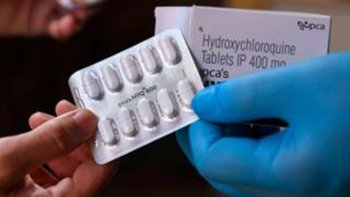
A trial to see whether two anti-malarial drugs could prevent COVID-19 has begun in Brighton and Oxford.
Chloroquine, hydroxychloroquine or a placebo will be given to more than 40,000 healthcare workers from Europe, Africa, Asia and South America.
All the participants are staff who are in contact with COVID-19 patients.
US President Donald Trump was criticised this week after he said he had been taking hydroxychloroquine, despite warnings it might be unsafe.
The first UK participants in the global trial were enrolled yesterday at the Brighton and Sussex University Hospitals and the John Radcliffe Hospital in Oxford.
They will be given either hydroxychloroquine or a placebo for three months. At sites in Asia, participants will be given chloroquine or a placebo.
These are the first of a planned 25 UK sites, with results expected by the end of the year.
The trial is open to anyone delivering direct care to coronavirus patients in the UK, as long as they have not been diagnosed with COVID-19.
It will test whether the drugs can prevent healthcare workers exposed to the virus from contracting it.
One of the study’s leaders, Prof Nicholas White at the University of Oxford said: “We really do not know if chloroquine or hydroxychloroquine are beneficial or harmful against COVID-19.”
But, he said, a randomised controlled trial such as this one, where neither the participant nor the researchers know who has been given the drug or a placebo, was the best way to find out.
“A widely available, safe and effective vaccine may be a long way off,” said Prof Martin Llewelyn from Brighton and Sussex Medical School, who is also leading the study.
“If drugs as well-tolerated as chloroquine and hydroxychloroquine could reduce the chances of catching COVID-19, this would be incredibly valuable.”
The drugs can reduce fever and inflammation and are used as both a prevention and a treatment for malaria.
Hydroxychloroquine regulates the body’s immune response and is also used in the treatment of rheumatoid arthritis and Lupus – an inflammatory disease caused by an overactive immune system.
Lupus charities in the UK and US have raised concerns that demand for the drug associated with coronavirus could threaten the supply for patients who already rely on it. -BBC
News
Northern Regional Police arrest three suspects in kidnapping case

The Northern Regional Police Command has arrested three men believed to be part of a kidnapping syndicate responsible for abducting a 42-year-old man in Wapuli, a community in the Yendi District.
The suspects, Haruna Seidu, Amidu Bandi and Osman Bandi allegedly kidnapped the victim and demanded GH¢100,000 from his family for his release.
According to a police statement, officers from the Regional Police Intelligence Directorate were deployed to Wapuli after the incident was reported.
The team conducted surveillance and launched a rescue operation.
On Friday, December 5, 2025, police successfully rescued the victim and arrested the suspects after what was described as an intense exchange of gunfire.
The suspects were later taken into custody and are expected to be arraigned before court.
The Police said the a fourth suspect, who is believed to have sustained gunshot wounds during the operation, is currently on the run.
They urged the public to provide any information that may lead to his arrest.
By: Jacob Aggrey
News
Nana Yaa Serwaa Sarpong advocates Bold educational reforms at the UK House of Lords during Global Education Summit.
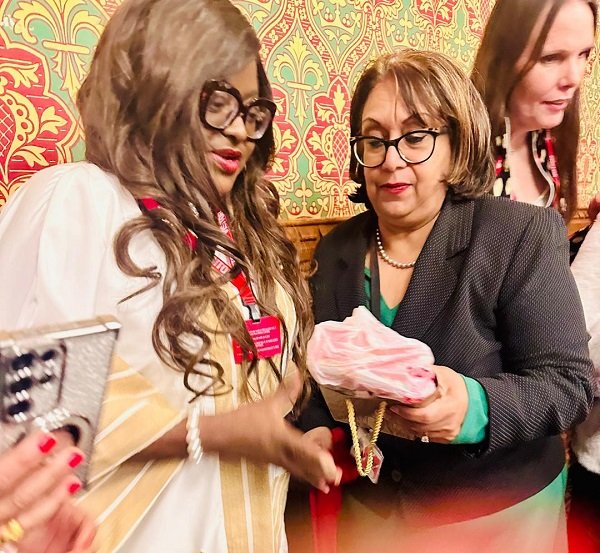
On November 27 2025, global development leaders, policymakers, education experts and civil society organisations gathered at the UK Parliament’s House of Lords for the Global Education Summit hosted by The Baroness Verma of Leicester and organised by the African British Business Forum.
The high-level event focused on the global rise in out-of-school children and the urgent reforms required to deliver equitable, quality education for all.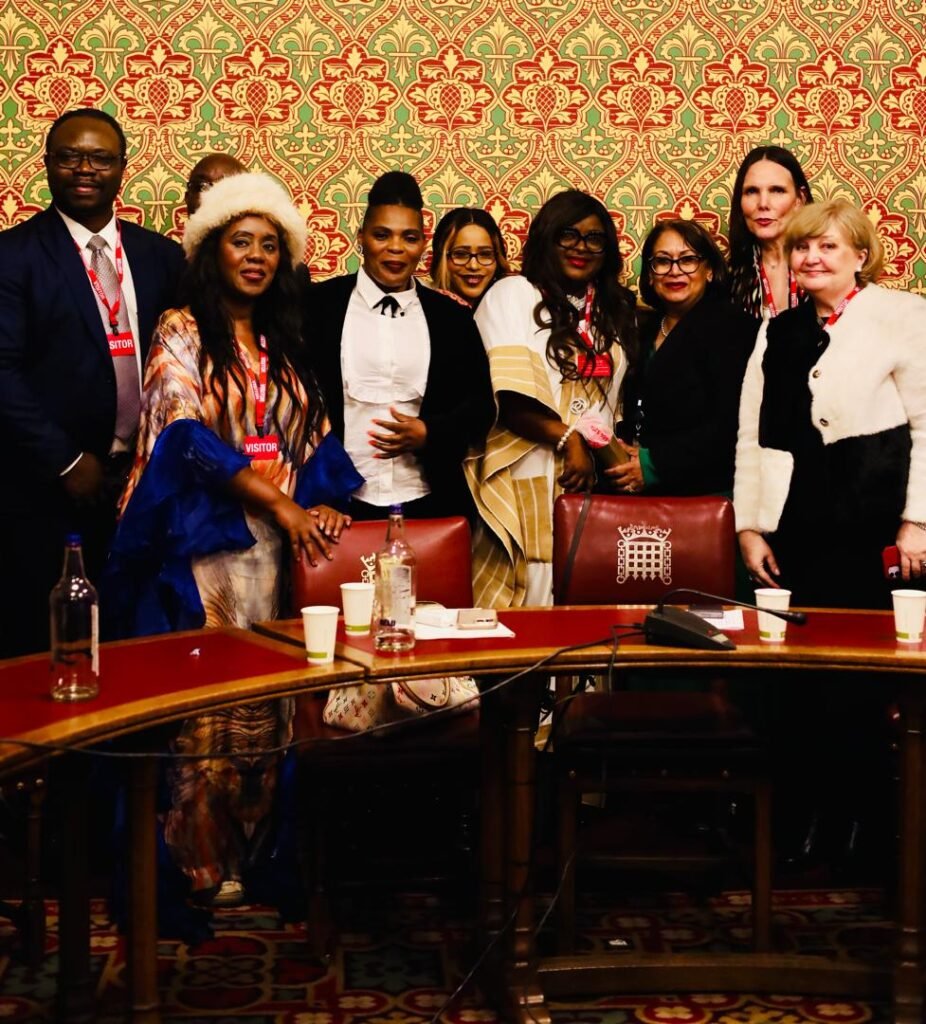
Among the distinguished Speakers was Nana Yaa Serwaa Sarpong, Founder & President of Women in Sustainability Africa (WiSA) and General Manager of the EIB Network, who delivered a compelling address on the theme “Breaking Barriers: Empowering Out-of-School Children Through Education.”
In her remarks, Nana Yaa who is currently celebrating 26years of Service in the Media, emphasized that education must be viewed as essential national infrastructure, not charity.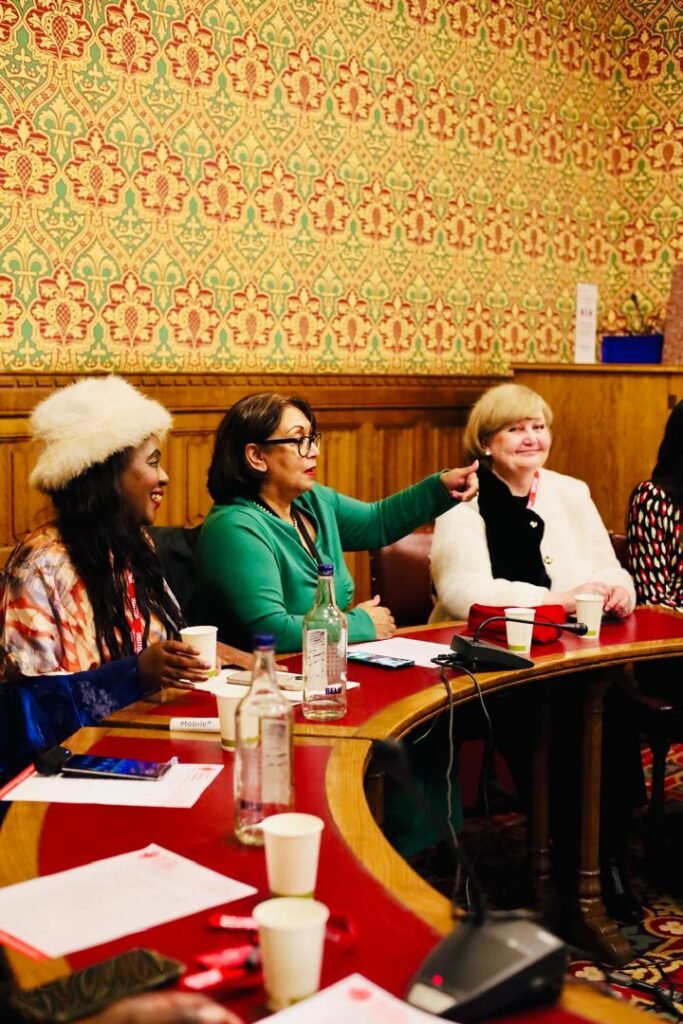
Borrowing experiences from her 18 years of empowering women and young people, she presented a strong case on how Africa’s poor educational systems tie into the poor state of its Gender Equality gap.
According to her, unlocking access to education is one of the most effective ways to strengthen economies, empower women and young girls, build resilient communities and drive sustainable development.
She highlighted that each child excluded from learning represents deferred innovation, delayed opportunity and a weakened society.
Nana Yaa noted that the barriers keeping millions of children out of school are complex and interconnected—ranging from poverty and cultural norms to geographical isolation and digital exclusion.
Addressing these challenges, she argued, requires solutions that are equally comprehensive and multi-layered.
Nana Yaa stressed that girls remain disproportionately affected, and investing in girls’ education has a transformative impact across several Sustainable Development Goals, including gender equality, poverty reduction, health outcomes and climate resilience.
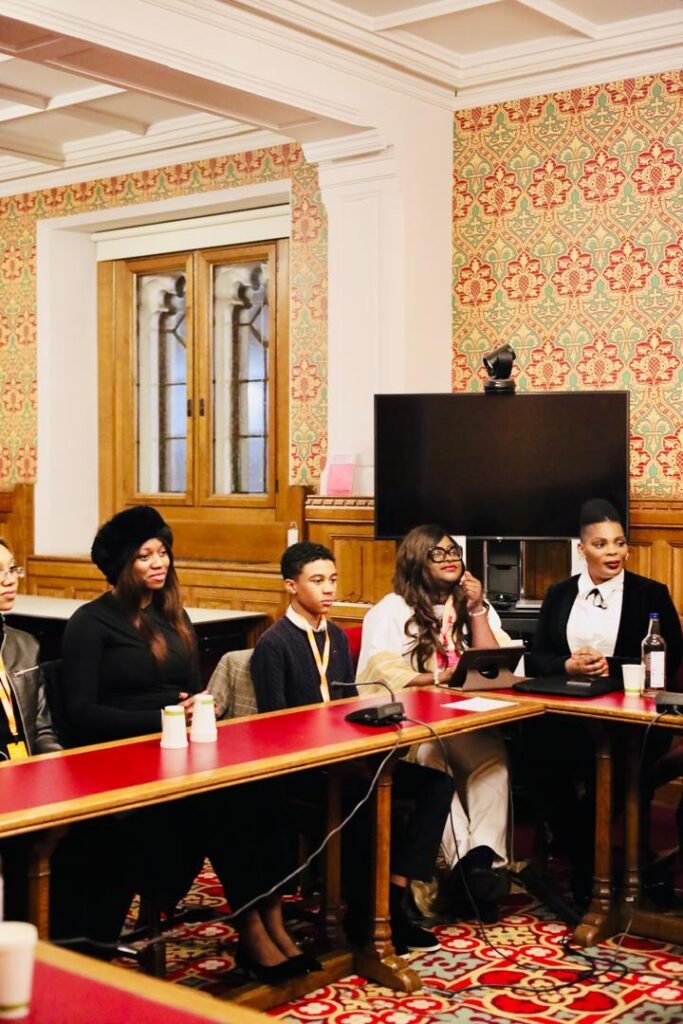
Nana Yaa advocated for the expansion of flexible, inclusive and community-responsive educational models, such as mobile classrooms for remote and nomadic communities, community learning hubs, after-hours programmes for working children, radio-based instruction for low-tech areas and digital platforms designed to reach learners regardless of connectivity challenges.
She warned that without deliberate action, the digital divide would continue to widen, pushing already vulnerable children further to the margins.
During her presentation, she introduced three major reforms WiSA is seeking Partners for, aimed at reshaping educational access across Africa and beyond.
These are the Digital Bridge for Out-of-School Children (DBOC), the Community Education Stewardship Hubs (CESH) involving local women educators and youth volunteers and the Teen-focused Global Skills Accelerator for Out-of-School Teens (GSA-OT).
She also underscored the need for education systems that support instruction, inclusivity and healing, particularly for children experiencing autism, trauma, displacement or conflict.
Nana Yaa emphasised that emotional and psychological support must be integrated into educational frameworks in order to restore confidence, stability and long-term learning capacity.
The summit concluded with strong commitments from stakeholders to adopt sustainable financing models, strengthen data-driven policies and expand cross-sector partnerships.
The African British Business Forum reaffirmed its commitment to championing innovative, scalable solutions to educational inclusion across the UK, Africa and the wider global community.






